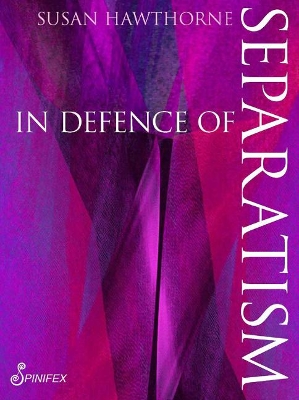Reviewed by HekArtemis on
I have never read a book about separatism before but it is something that has always appealed to me as an idea. And I do mean always, even as a girl, but then I had kids and one is a boy so there goes that idea lol. But what is nice about this book is it discusses multiple levels of separatism, not just the most extreme form. So of course there is the extreme versions of living in all women villages/towns away from men, or even more for lesbians they can have all lesbian communities that exclude hetero and bi women (I use exclude in a normal way here, exclusion is good sometimes). But there are also the not so extreme versions, the temporary ones - from simple bookclubs, to sporting events, to consciousness raising events, to festivals, to political plots to overtake the world. Hawthorne doesn't say that any are better than others, rather she points out that all forms of separatism are necessary and it is also fine for some women to not be separatists. Hawthorne absolutely respects the fact that some women just cannot or do not want to separate, and that is a good thing I think, as the separatist discussion can be a bit alienating for many women.
The book is not just about separatism however, it is also about why we might need it. She looks into how and why there are such massive power imbalances between men and women - and even how an individually powerful woman is still on the lower rung of power levels because of the social structure giving even mediocre men more power than powerful women. She admits it's not always true, because every rule has an exception that proves it. She looks into heterosexuality and how it has been used against women - she thankfully doesn't talk about political lesbianism, which is all sorts of controversial. But she does mention choosing to love women or become celibate, as options that we don't always recognise as existing. She looks at how sex based stereotypes work to make women devalue themselves and each other and how this only ever helps men, works against women.
She looks at several more things that show us why it's not always a good thing to be around men, and why we need to get away from men and be among women, even if only temporarily and occasionally.
I love every part of this book to be honest, but I think the best thing is perhaps that Hawthorne does make this accessible to all women. She provides examples and encouragement of less extreme forms of separatism that are likely available to most of us - even those of us with sons. That makes this a very, well, inclusive book, in my opinion.
Highly recommend it.
Reading updates
- Started reading
- 21 September, 2019: Finished reading
- 21 September, 2019: Reviewed
